
The Hidden Gem of Mondulkiri Province
Mondulkiri Province, located in the eastern part of Cambodia, is a hidden gem waiting to be discovered by adventurous travelers. The province is known for its lush green forests, rolling hills, and stunning waterfalls. It offers a refreshing escape from the bustling cities and provides a glimpse into Cambodia's natural beauty and rich culture. Sen Monorom, the capital of Mondulkiri, serves as the gateway to the province's many attractions. Visitors can explore the vibrant local markets, sample traditional Khmer cuisine, and interact with the friendly Bunong people, an indigenous group known for their unique customs and traditions. One of the highlights of Mondulkiri is the Bou Sra Waterfall, one of the most beautiful and powerful waterfalls in Cambodia. The waterfall is a perfect spot for a refreshing swim and a picnic amidst the serene natural surroundings. For those interested in wildlife, the Mondulkiri Project offers the opportunity to interact with rescued elephants in a responsible and ethical manner. Adventure seekers can embark on treks through the dense jungles, home to a variety of flora and fauna. The province is also known for its coffee plantations, where visitors can learn about the coffee-making process and enjoy a freshly brewed cup while taking in the panoramic views of the countryside.
Local tips in Mondulkiri Province
- Visit during the dry season (November to May) for the best weather conditions and clearer roads.
- Wear comfortable hiking shoes and bring insect repellent for treks through the jungle.
- Respect local customs and traditions when interacting with the Bunong people.
- Hire a local guide to enhance your understanding of the area's natural and cultural heritage.
- Carry cash, as ATMs are limited in remote areas.
The Hidden Gem of Mondulkiri Province
Mondulkiri Province, located in the eastern part of Cambodia, is a hidden gem waiting to be discovered by adventurous travelers. The province is known for its lush green forests, rolling hills, and stunning waterfalls. It offers a refreshing escape from the bustling cities and provides a glimpse into Cambodia's natural beauty and rich culture. Sen Monorom, the capital of Mondulkiri, serves as the gateway to the province's many attractions. Visitors can explore the vibrant local markets, sample traditional Khmer cuisine, and interact with the friendly Bunong people, an indigenous group known for their unique customs and traditions. One of the highlights of Mondulkiri is the Bou Sra Waterfall, one of the most beautiful and powerful waterfalls in Cambodia. The waterfall is a perfect spot for a refreshing swim and a picnic amidst the serene natural surroundings. For those interested in wildlife, the Mondulkiri Project offers the opportunity to interact with rescued elephants in a responsible and ethical manner. Adventure seekers can embark on treks through the dense jungles, home to a variety of flora and fauna. The province is also known for its coffee plantations, where visitors can learn about the coffee-making process and enjoy a freshly brewed cup while taking in the panoramic views of the countryside.
When is the best time to go to Mondulkiri Province?
Iconic landmarks you can’t miss
Bousra Waterfall
Discover the majestic Bousra Waterfall in Mondulkiri, Cambodia: a three-tiered natural wonder with cultural significance and adventure.
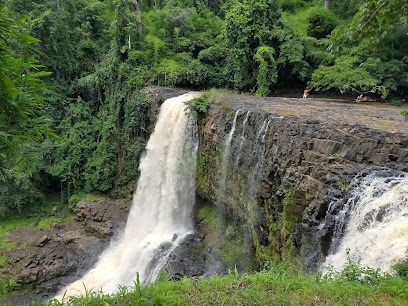
Mondulkiri Project Elephant Sanctuary
Observe rescued elephants in a natural habitat at Mondulkiri Project, an ethical sanctuary supporting local communities and forest preservation in Cambodia.
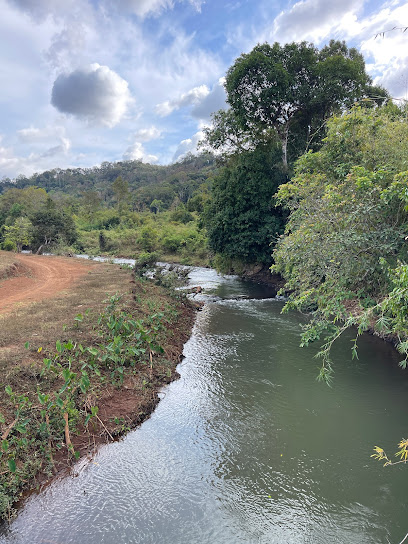
Kouprey Roundabout
Discover the heart of Mondulkiri at Kouprey Roundabout, a symbol of Cambodia's heritage and a gateway to natural wonders and local life.
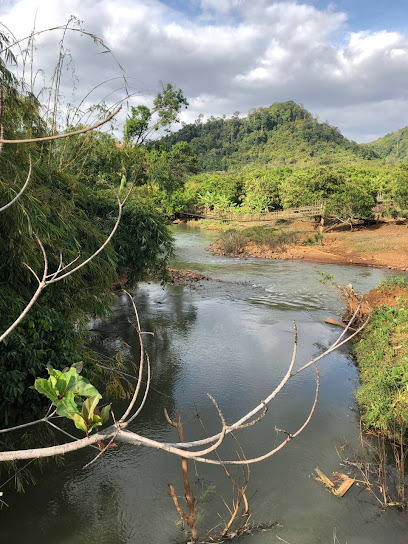
Mondulkiri Elephant & Wildlife Sanctuary - L.E.A.F Cambodia
Ethical elephant encounters in Mondulkiri, Cambodia: Support conservation and local communities while experiencing the beauty of the wild.
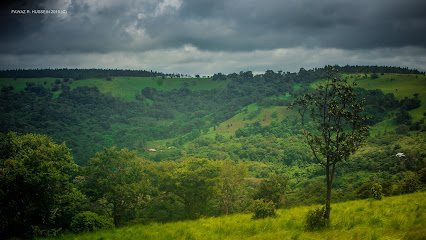
Phnom Namlear Wildlife Sanctuary
Discover Cambodia's wild side at Phnom Namlear Wildlife Sanctuary: Trekking, wildlife spotting, and stunning natural beauty await!
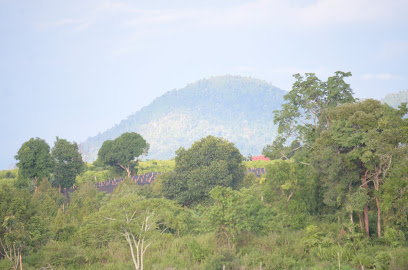
Mayura Hill Resort
Experience tranquility and adventure at Mayura Hill Resort in Mondulkiri, Cambodia. Discover stunning landscapes, ethical wildlife encounters, and cultural immersion.

Phnom Nam Lyr Wildlife Sanctuary
Discover Cambodia's Phnom Nam Lyr Wildlife Sanctuary: a pristine haven of biodiversity, stunning landscapes, and authentic cultural experiences in Mondulkiri.
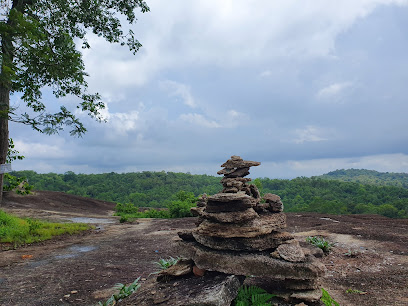
Phnum Prech Wildlife Sanctuary
Discover Cambodia's natural paradise at Phnum Prech Wildlife Sanctuary: Explore diverse wildlife, lush landscapes, and serene trails in this protected haven.
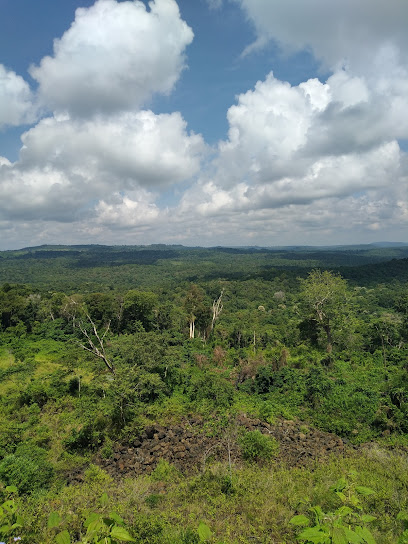
Build's Love Mountain
Discover panoramic views and cultural immersion at Build's Love Mountain, a serene escape in Mondulkiri's natural heartland.
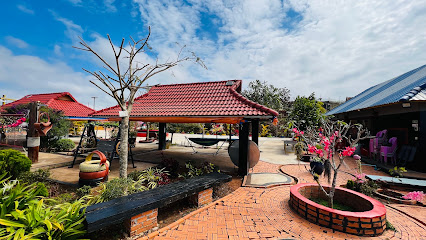
Phnom Doh Krormom Shrine
Discover Phnom Doh Krormom Shrine in Mondulkiri: a spiritual haven with stunning views, rich history, and cultural significance for an unforgettable Cambodian experience.
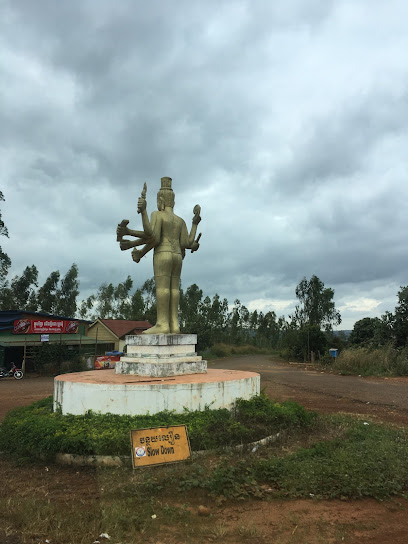
Chrey Thom Waterfall
Discover the untouched beauty of Mondulkiri at Chrey Thom Waterfall, a year-round natural escape offering serene landscapes, refreshing swims, and a connection with Cambodia's wilderness.
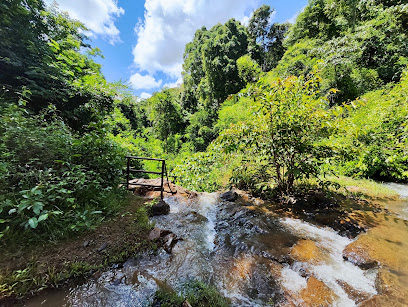
Kbal Preah Waterfall
Discover the serene beauty of Kbal Preah Waterfall in Mondulkiri: a hidden paradise with cascading waters, lush landscapes, and rich cultural experiences.
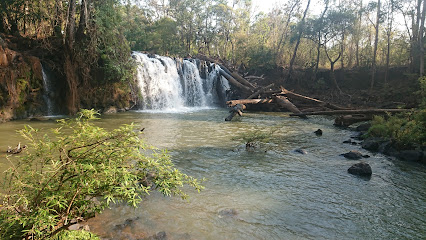
Bunong trekking in Cambodia & Homestay
Explore Mondulkiri's stunning landscapes and rich culture with authentic Bunong trekking experiences. An unforgettable Cambodian adventure.
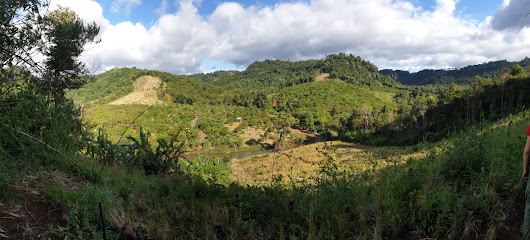
Pine Tree Plantation
Discover tranquility among towering pines at this unique plantation near Krong Saen Monourom, offering a serene escape and picturesque views.
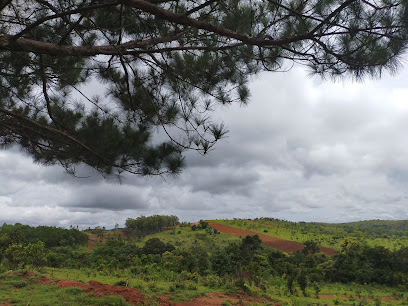
Bousra Eco-Park
Discover the natural beauty of Mondulkiri at Bousra Eco-Park, home to lush landscapes, diverse wildlife, and the majestic Bousra Waterfall.
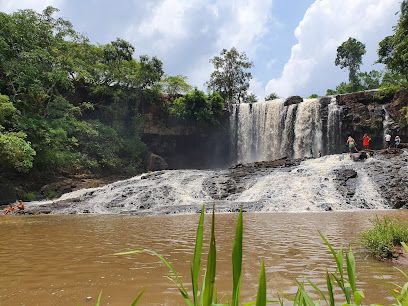
Unmissable attractions to see
Bousra Waterfall
Experience the breathtaking beauty of Bousra Waterfall, Cambodia's stunning natural attraction nestled in a serene national park.
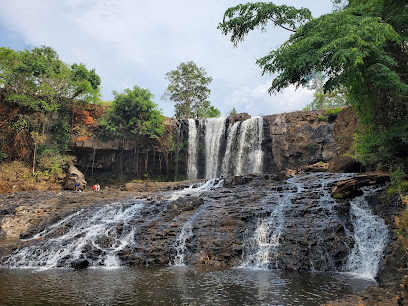
Mondulkiri Project Elephant Sanctuary
Experience ethical elephant interactions and witness conservation efforts at Mondulkiri Project Elephant Sanctuary in Cambodia's natural beauty.
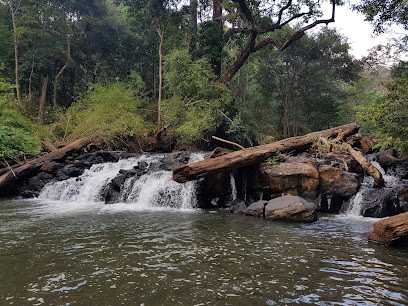
Kouprey Roundabout
Discover the heart of Mondulkiri at Kouprey Roundabout, a cultural landmark showcasing Cambodia's heritage and local life.
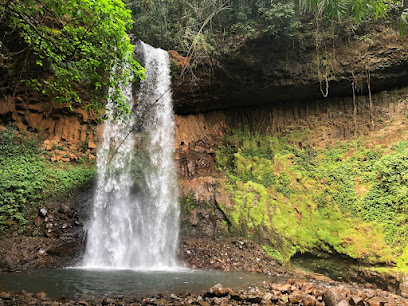
Mondulkiri Elephant & Wildlife Sanctuary - L.E.A.F Cambodia
Explore the breathtaking Mondulkiri Elephant & Wildlife Sanctuary, where nature meets conservation and unforgettable wildlife experiences await.
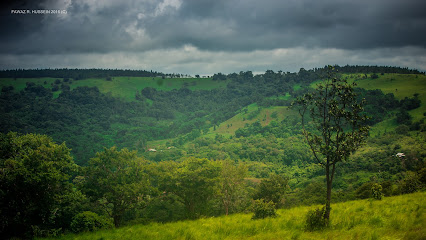
Phnum Prech Wildlife Sanctuary
Experience the breathtaking Phnum Prech Wildlife Sanctuary, a natural paradise in Cambodia filled with diverse wildlife, stunning landscapes, and adventure.
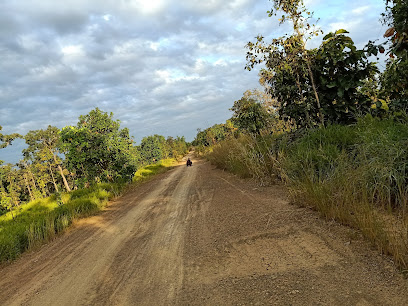
Chrey Thom Waterfall
Discover the serene beauty of Chrey Thom Waterfall in Mondulkiri, a year-round natural escape surrounded by lush landscapes and tranquil scenery.
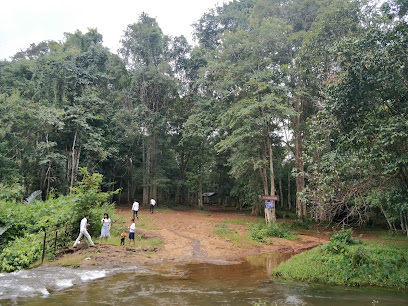
Sen Monorom Waterfall
Experience the breathtaking beauty of Sen Monorom Waterfall, a serene retreat in Krong Saen Monourom, Cambodia, perfect for nature lovers and adventurers alike.
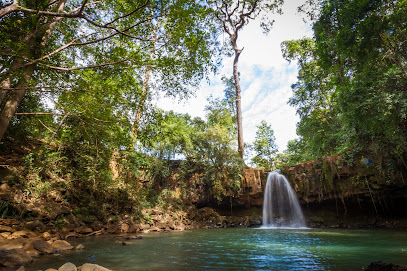
Laeng Truk Waterfall
Discover the breathtaking Laeng Truk Waterfall in Krong Saen Monourom, a natural paradise perfect for adventure seekers and nature lovers.
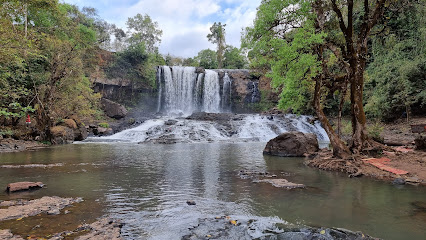
ផ្លូវបំបែកទៅទឹកជ្រោះប៊ូស្រា Junction to Busra Waterfall
Explore the serene beauty of Junction to Busra Waterfall in Krong Saen Monourom, where nature meets tranquility and adventure awaits.
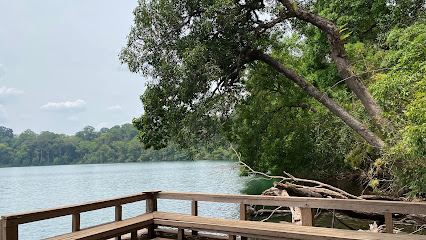
Kbal Preah Waterfall
Explore the breathtaking beauty of Kbal Preah Waterfall in Krong Saen Monourom, Cambodia, a natural paradise for relaxation and adventure.
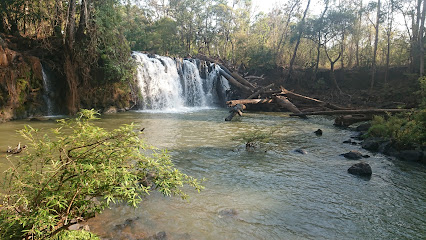
Chrey Yos Eco-Park
Explore Chrey Yos Eco-Park, a peaceful ecological haven in Krong Saen Monourom, showcasing Cambodia's rich biodiversity and natural beauty.
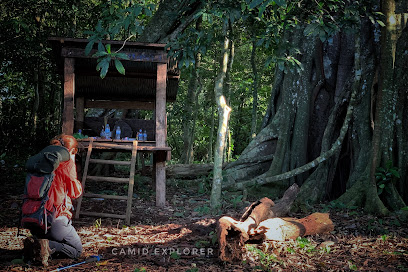
ភ្នំអណ្តូងស្នេហ៍
Discover breathtaking views and a touch of romance at Phnom Andong Snear, Mondulkiri's 'Hill of Love,' offering stunning S-shaped road scenery.
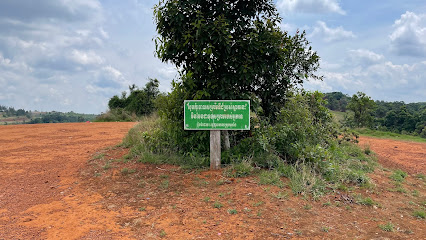
Bunong trekking in Cambodia & Homestay
Immerse yourself in the beauty of Bunong Trekking, where breathtaking landscapes meet rich local culture and unforgettable adventures await.
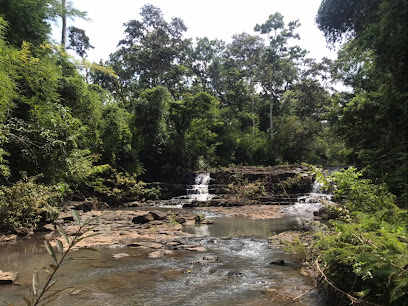
Mondulkiri view point
Experience the breathtaking beauty of Mondulkiri View Point, a serene tourist attraction offering stunning landscapes and enriching cultural interactions in Cambodia.
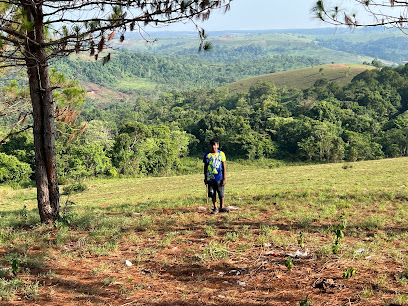
Mayura Wild Park
Escape to nature's tranquility at Mayura Wild Park in Mondulkiri, Cambodia, with diverse wildlife and scenic landscapes for a perfect retreat.
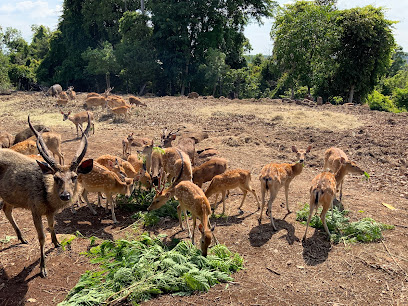
Essential places to dine
Oromis Guest House and Restaurant
Experience tranquility at Oromis Guest House and Restaurant in Krong Saen Monourom - where comfort meets authentic Cambodian hospitality.
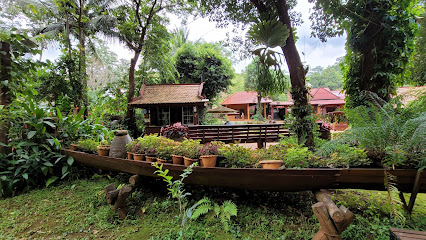
Mondulkiri Pizza
Experience authentic Cambodian-style pizza at Mondulkiri Pizza in Krong Saen Monourom - a delicious blend of tradition and local flavors awaits!
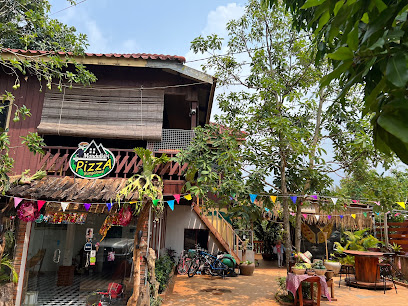
The Hangout
Experience the best of Khmer and Western cuisine at The Hangout in Krong Saen Monourom - where flavor meets affordability.
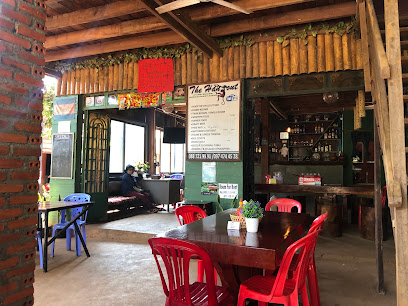
Bamboo Cafe
Discover the flavors of Khmer and Western cuisine at Bamboo Cafe - your go-to restaurant in Krong Saen Monourom.
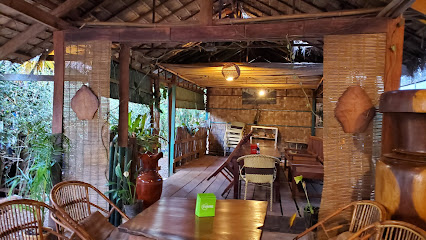
Route 76 Guest House - Italian Restaurant & Lounge Bar
Discover the essence of Italy at Route 76 Guest House - where authentic cuisine meets breathtaking views in Krong Saen Monourom.
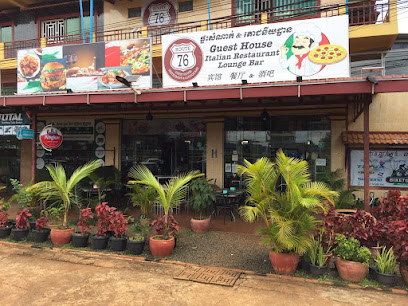
Cinnamon Café and Bakery
Discover delightful baked goods and hearty meals at Cinnamon Café and Bakery in Krong Saen Monourom—a cozy retreat for food lovers.
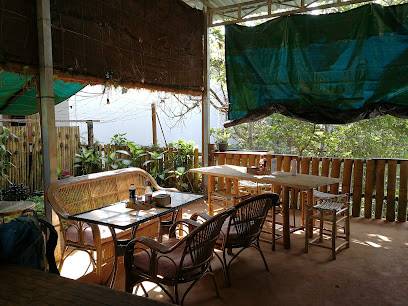
Mayura Hill Resort
Discover tranquility at Mayura Hill Resort - your peaceful oasis in Krong Saen Monourom with stunning views and delicious cuisine.

Manel Guesthouse and Restaurant
Experience authentic Cambodian hospitality at Manel Guesthouse & Restaurant in Krong Saen Monourom – where comfort meets exquisite cuisine.
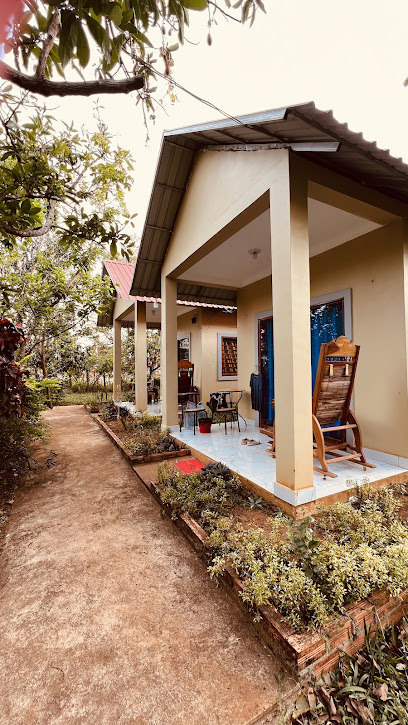
Chantha Sreypich Guesthouse & Restaurant
Experience authentic Cambodian flavors and warm hospitality at Chantha Sreypich Guesthouse & Restaurant in Krong Saen Monourom.
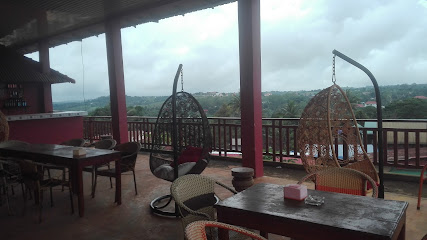
អាហារសម្រន់របស់ភា - Phea’s Treats
Discover delightful pastries and aromatic coffee at Phea's Treats in Krong Saen Monourom – a must-visit culinary haven.
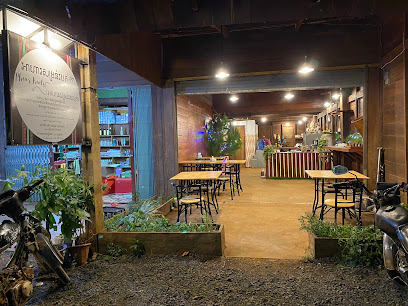
Chomno Thmey Restaurant
Experience the best of Cambodian flavors at Chomno Thmey Restaurant in Krong Saen Monourom.
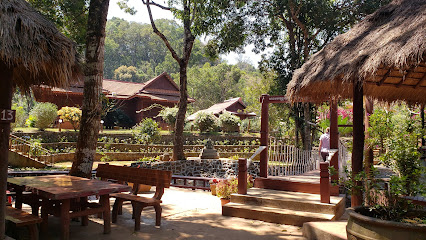
PIDA COFFEE FARM
Experience exceptional coffee and breathtaking views at PIDA Coffee Farm in Krong Saen Monourom - a must-visit destination for nature lovers.
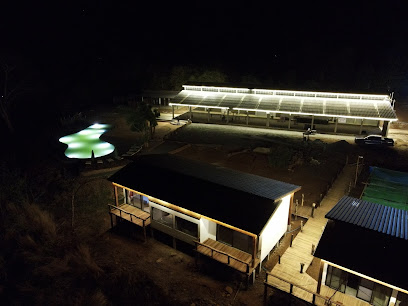
កាហ្វេដងអូរ by botanica
Experience the best Khmer coffee at កាហ្វេដងអូរ by botanica in Krong Saen Monourom – a cozy haven for coffee lovers.
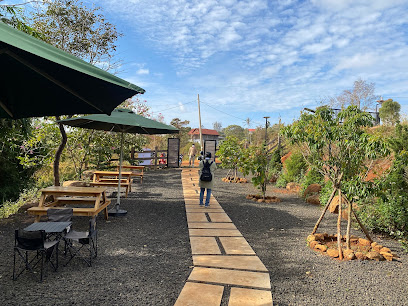
Ramorn Pub Mondulkiri
Discover authentic Cambodian flavors at Ramorn Pub Mondulkiri - a vibrant dining experience nestled in the heart of Krong Saen Monourom.
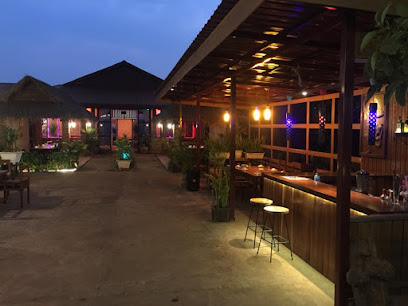
Monorom Pizza
Experience authentic flavors at Monorom Pizza in Krong Saen Monourom—where every bite tells a story.
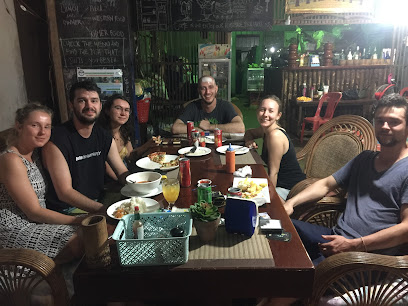
Markets, malls and hidden boutiques
កាហ្វេដងអូរ by botanica
Discover the serene ambiance of កាហ្វេដងអូរ by botanica, a coffee shop in Krong Saen Monourom offering a perfect blend of tranquility and taste.
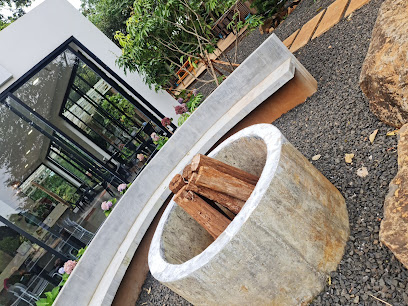
Grocery Store
Explore the rich culinary heritage of Asia at this vibrant grocery store in Krong Saen Monourom, where authentic flavors await.
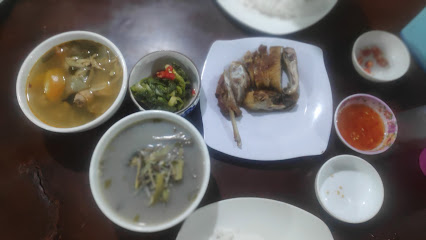
មណ្ឌលគិរីលក់គ្រឿងសង្ហារឹម
Discover unique and stylish furniture pieces at មណ្ឌលគិរីលក់គ្រឿងសង្ហារឹម in Krong Saen Monourom, where local craftsmanship meets modern design.
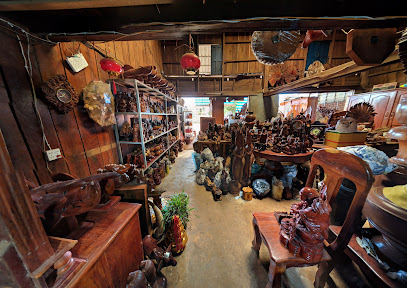
CoffeeSell & Souveniសនសារ៉ាត
Explore the charm of Cambodia at CoffeeSell & Souveniសនសារ៉ាត, your go-to destination for unique souvenirs and aromatic coffee.
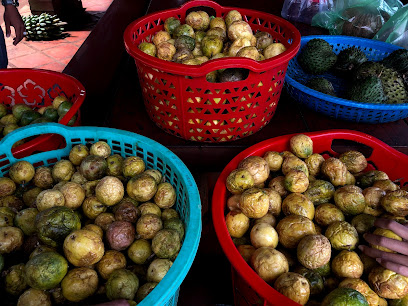
Grocery store
Discover local flavors and vibrant culture at the grocery store in Krong Saen Monourom, a must-visit for authentic Cambodian experiences.
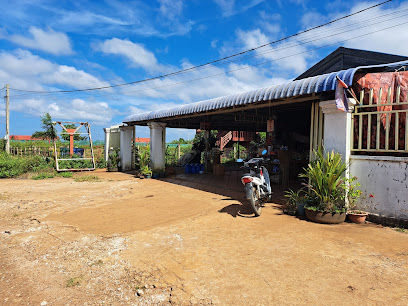
ឌីតាម៉ាត 2500 ឡើង
Experience local culture at ឌីតាម៉ាត 2500 ឡើង, a charming general store in Krong Saen Monourom, perfect for unique finds and authentic interactions.
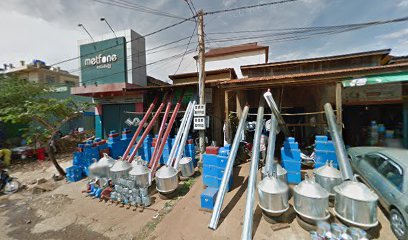
ពិភពអីវ៉ាន់
Discover authentic Cambodian gifts and handicrafts at the charming gift shop, ពិភពអីវ៉ាន់, in Krong Saen Monourom.
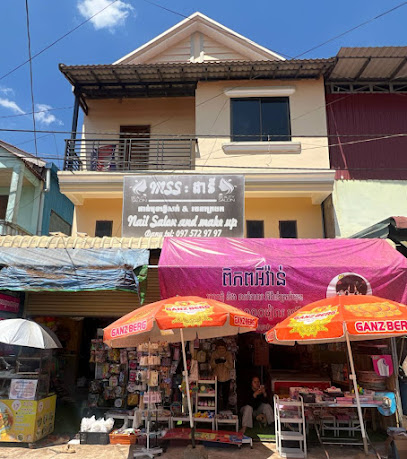
ប៊ុនឌីណា ដាក់ដំា
Explore local culture and unique treasures at Bun Dena Dak Dama, a charming general store in Krong Saen Monourom, Cambodia.
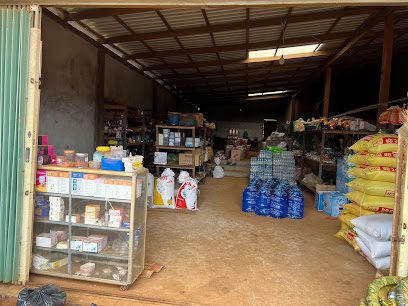
RyRy store
Explore RyRy Store in Krong Saen Monourom for unique, handcrafted furniture and decor that captures the essence of Cambodian craftsmanship.
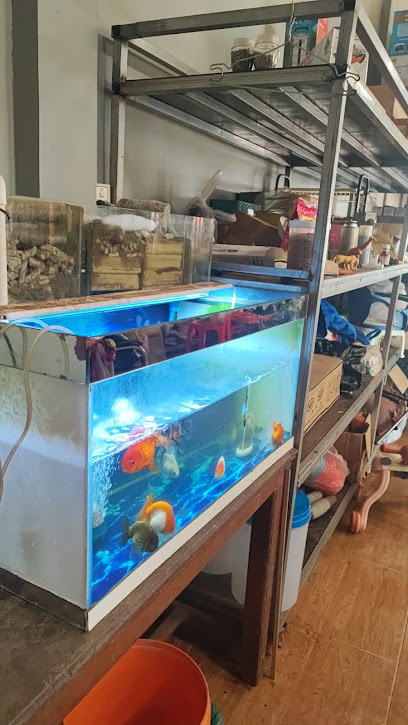
បិល បញ្ញា
Explore the vibrant tastes of Asia at បិល បញ្ញា, Krong Saen Monourom's premier Asian grocery store, offering unique ingredients and snacks.
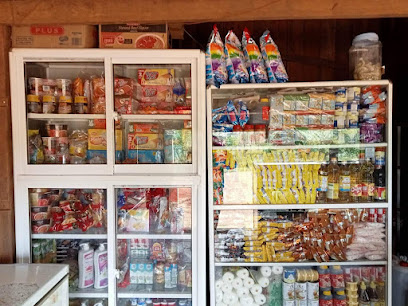
Cake Town Mondulkiri
Experience the sweetness of Cambodian pastries at Cake Town Mondulkiri, where delightful treats meet a warm, welcoming atmosphere.
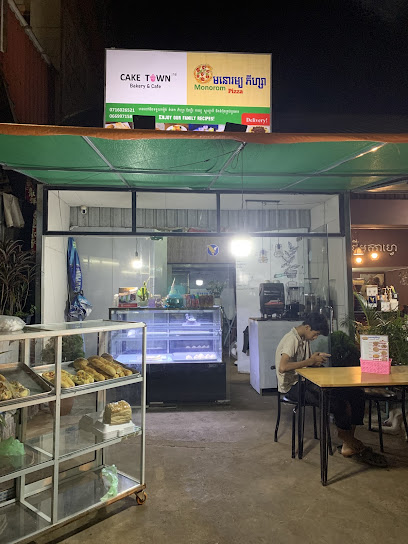
Mondulkiri Passion Fruit Wine
Experience the unique taste of Mondulkiri Passion Fruit Wine, where local heritage meets exquisite craftsmanship in every bottle.
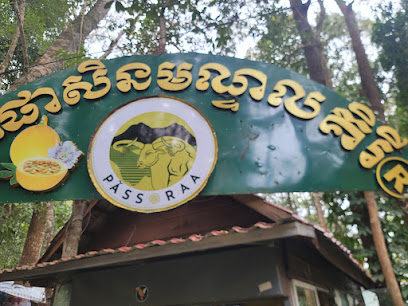
Kelly Fasion Shop
Explore local fashion and unique styles at Kelly Fashion Shop in Krong Saen Monourom, a treasure trove for clothing enthusiasts.
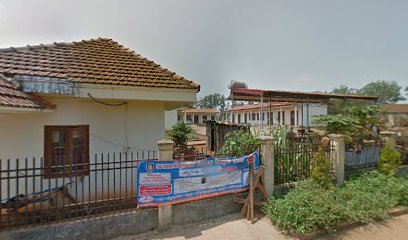
Laisim shop
Explore Laisim Shop in Ou Reang for unique Cambodian crafts and souvenirs that capture the essence of local culture.
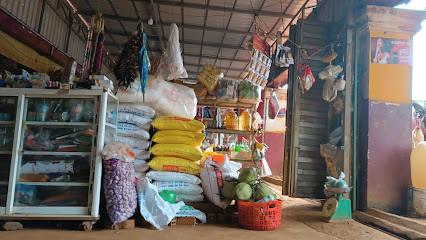
Depo khim sang leng chrada mondulkiri
Explore local craftsmanship and discover unique building materials at Depo Khim Sang Leng Chrada Mondulkiri in Krong Saen Monourom.
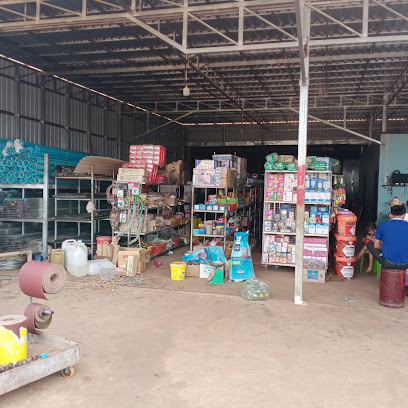
Essential bars & hidden hideouts
Mondulkiri Pizza
Experience the delightful taste of Mondulkiri Pizza, where fresh ingredients meet local flavors in a cozy dining atmosphere.
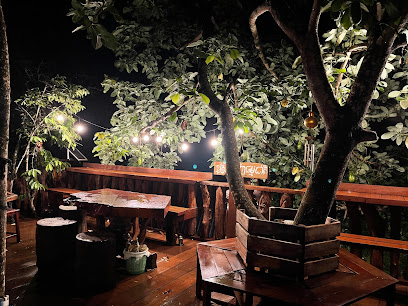
Hello Karaoke
Experience the lively atmosphere of Hello Karaoke in Đắk Mil, where you can sing, laugh, and create unforgettable memories with friends.
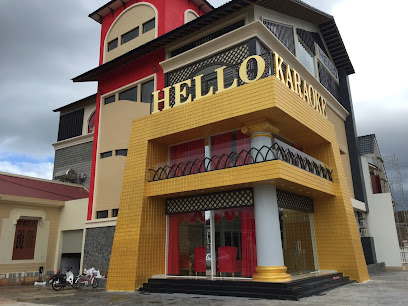
Route 76 Guest House - Italian Restaurant & Lounge Bar
Discover the enchanting Route 76 Guest House, where authentic Italian cuisine meets a cozy lounge atmosphere in Krong Saen Monourom.
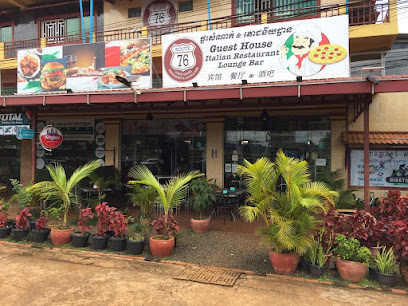
Ramorn Pub Mondulkiri
Experience the vibrant flavors of Mondulkiri at Ramorn Pub, where local cuisine meets a lively atmosphere in Krong Saen Monourom.
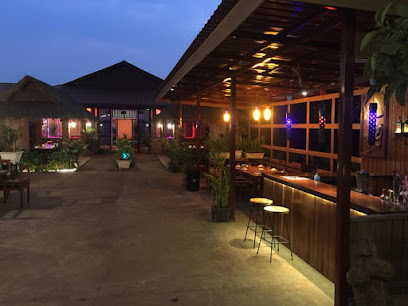
ROYAL MONDULKIRI KTV
Discover the joy of singing at Royal Mondulkiri KTV, the ultimate karaoke experience in Krong Saen Monourom, Cambodia.
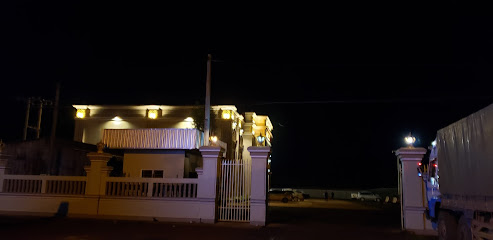
The Living Room Mondulkiri
Experience the rich flavors of Cambodian cuisine at The Living Room Mondulkiri, where every meal is a celebration of local ingredients and vibrant culture.
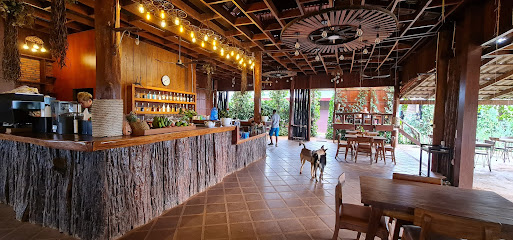
Veha jungle tours& lodge
Discover the enchanting Veha Jungle Tours & Lodge, where nature meets culture in Krong Saen Monourom, Cambodia.
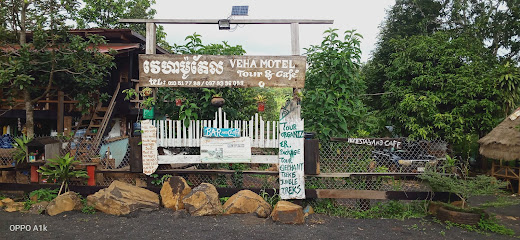
TÂY HỒ CLUB
Experience the vibrant nightlife at TÂY HỒ CLUB, a must-visit bar in Đắk Nông, Vietnam, offering a lively atmosphere and diverse drink options.
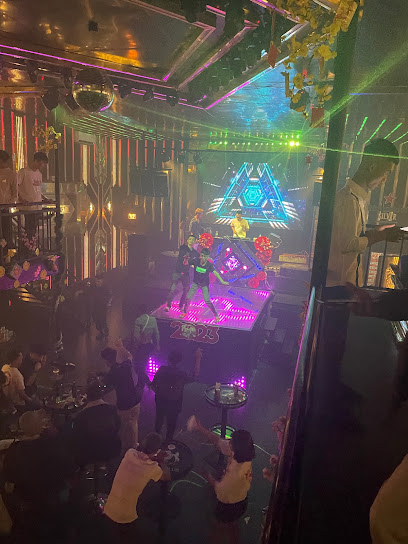
ងង
Experience the vibrant nightlife of Krong Saen Monourom at this popular bar, where locals and travelers come together for unforgettable moments.
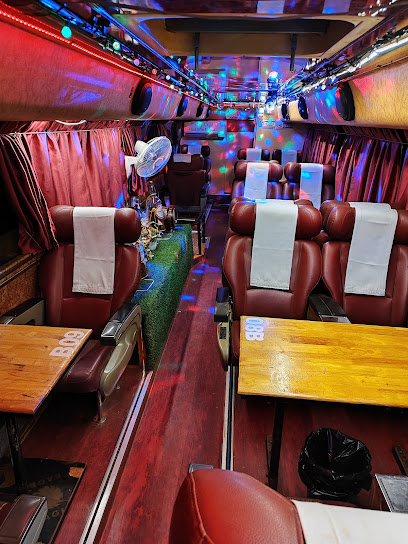
ដា,ស្រស់,restaurant
Experience the essence of Asian cuisine at Da, Sros in Krong Saen Monourom, where authentic flavors and warm hospitality await.
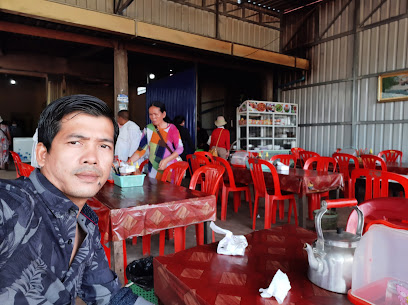
Royal Beer Club
Experience the local beer scene at Royal Beer Club in Đắk Mil, where great brews and a friendly atmosphere await.
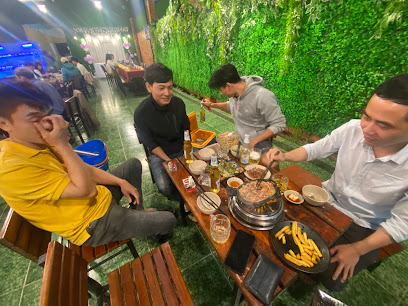
ដីចម្ការរបស់ប្រុសស្មោះ ម៉ៅ ប៊ុនណា
Experience the vibrant nightlife and authentic Cambodian culture at Mao Bunna's Bar in Dok Yong, a perfect spot for relaxation and socializing.
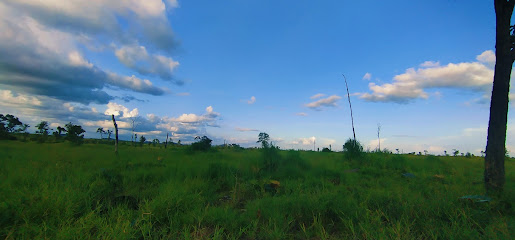
Nagara Pub & Lounge
Experience the vibrant culture of Mondulkiri at Nagara Pub & Lounge, where relaxation meets local flavors in a welcoming atmosphere.
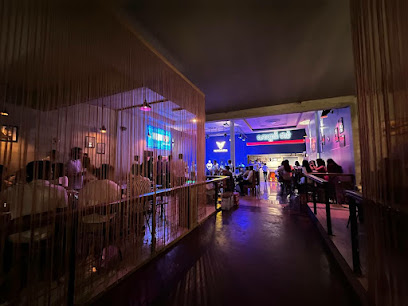
Indigenous Bar Mondulkiri
Experience the unique culture and flavors of Cambodia at Indigenous Bar Mondulkiri in Krong Saen Monourom, a must-visit cafe for all travelers.
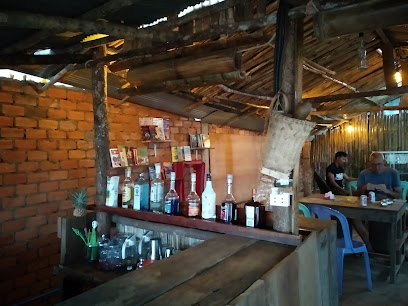
Local Phrases about Mondulkiri Province
-
- Helloសួស្តី
[suosdei] - Goodbyeលាស់ហើយ
[leah hao] - Yesបាទ/បាទណា
[baat/baat na] - Noទេ
[te] - Please/You're welcomeសូម
[som] - Thank youអរគុណ
[aokun] - Excuse me/Sorryសូមអត់
[som ot] - How are you?អ្នកសុខសប្បាយ?
[neak sok sabay?] - Fine. And you?សុខសប្បាយ ហើយ អ្នកបង?
[sok sabay hao neak bong?] - Do you speak English?តើ អ្នក និយាយ អង់គ្លេស បាន ទេ?
[te neak niyeay angkleh sai te?] - I don't understandខិត ទៅ ដល់
[khit toal dole]
- Helloសួស្តី
-
- I'd like to see the menu, pleaseខុសរបស់ម៉ឺនបង, សូម
[khos roup mean bong, som] - I don't eat meatខិតទំនួលម្ហូប
[khit tnam nul houb] - Cheers!ជល់!
[jol!] - I would like to pay, pleaseខុសទូទាត់, សូម
[khos tout, som]
- I'd like to see the menu, pleaseខុសរបស់ម៉ឺនបង, សូម
-
- Help!គាំទ្រ!
[kamtror!] - Go away!ចាំចាំ!
[cham cham!] - Call the Police!ហេតុចុះសមរាប!
[het choh somrap!] - Call a doctor!ហេតុចុះវេជ្ជបង!
[het choh vech bong!] - I'm lostខិត ទៅ ខណ្ឌ
[khit toal khand] - I'm illខិត ទៅ ភ្នែក
[khit toal phneak]
- Help!គាំទ្រ!
-
- I'd like to buy...ខុសទិញ...
[khos tun...] - I'm just lookingខិតទៅស្វែងលទ។
[khit toal svaeng lot.] - How much is it?បើបានតម្លៃប៉ុន្មាន?
[be ban tamley ponnea?] - That's too expensiveនេះ គ្រួសារ ពេកបំផុត
[ni krusar peak bomphat] - Can you lower the price?តើ អ្នក អាច បង្ហាញ តម្លៃ ទិញ បាន ទេ?
[te neak ach bangchang tamley tun ban te?]
- I'd like to buy...ខុសទិញ...
-
- What time is it?ម៉ោង ប្រសិនម៉ោង?
[meuang prasneang meuang?] - It's one o'clockវិញគូត
[veng kut] - Half past (10)បីចុតដល់ (១០)
[bei chot dole (sep)] - Morningព្រឹក
[preah] - Afternoonល្ងាច
[langcha] - Eveningល្ងះ
[lang] - Yesterdayម្សិលី
[msi] - Todayថ្ងៃនេះ
[thngai ni] - Tomorrowថ្ងៃស្អែ
[thngai sae] - 1១
[mouy] - 2២
[pi] - 3៣
[bei] - 4៤
[bou] - 5៥
[pram] - 6៦
[pram muoy] - 7៧
[pram pi] - 8៨
[pram bei] - 9៩
[pram bou] - 10១០
[dop]
- What time is it?ម៉ោង ប្រសិនម៉ោង?
-
- Where's a/the...?ទើបមាន...?
[teb mean...?] - What's the address?អាស័យលើវិបត៍?
[asay loi veap tay?] - Can you show me (on the map)?តើអ្នកអាចបង្ហាញខ្ញុំ (នៅលើផ្លូវ) បានទេ?
[te neak ach bangchang knhom (now ley phlou) ban te?] - When's the next (bus)?នាទី ទំពូងបន្តិច នេះ?
[neati tompong banteach ney?] - A ticket (to ....)សំបកទំពូង (ទៅ ...)
[sambak tompong (tov ...)]
- Where's a/the...?ទើបមាន...?
History of Mondulkiri Province
-
Mondulkiri Province, located in the eastern part of Cambodia, has long been home to various indigenous groups, most notably the Bunong people. The Bunong have a rich cultural heritage that includes traditional elephant herding, animistic spiritual practices, and intricate weaving techniques. Their deep connection to the land and its natural resources has shaped the cultural landscape of Mondulkiri for centuries.
-
In the late 19th and early 20th centuries, Mondulkiri, like much of Cambodia, fell under French colonial rule. The French influence can still be seen in the provincial capital, Sen Monorom, through its colonial-era architecture and layout. This period also saw the introduction of rubber plantations and other agricultural enterprises, which have had lasting economic impacts on the region.
-
Following Cambodia’s independence from France in 1953, Mondulkiri experienced significant changes. The province was relatively undeveloped compared to other parts of the country, and efforts were made to integrate it more fully into the national economy and infrastructure. However, these efforts were interrupted by the political turmoil that would soon engulf the country.
-
The Khmer Rouge regime (1975-1979) had a devastating impact on Mondulkiri Province, as it did on the rest of Cambodia. The Bunong and other local populations suffered greatly under the brutal policies of the Khmer Rouge, which sought to eliminate ethnic and cultural diversity. Many were forced into labor camps, and the traditional ways of life were severely disrupted.
-
In recent years, Mondulkiri has seen increased development and modernization, with improvements in infrastructure, healthcare, and education. However, this progress comes with challenges, particularly in balancing development with the need to preserve the province's unique cultural and natural heritage. Conservation efforts are underway to protect Mondulkiri’s rich biodiversity, including its endangered elephant populations and vast forests.
Mondulkiri Province Essentials
-
Mondulkiri Province is located in the eastern part of Cambodia. The most common way to reach Mondulkiri is by road from Phnom Penh. Buses and minibuses (vans) operate daily from Phnom Penh to Sen Monorom, the capital of Mondulkiri, and the journey typically takes around 6 to 7 hours. Alternatively, you can hire a private taxi for a more comfortable and quicker trip. There are no direct flights to Mondulkiri, so overland travel is your best option.
-
Once you are in Mondulkiri, getting around can be done via motorbike rentals, tuk-tuks, or bicycles, which are readily available in Sen Monorom. For exploring the more remote areas, hiring a local guide with a 4x4 vehicle is advisable. Public transport options within Mondulkiri are limited, so renting your own mode of transportation or hiring a driver can provide greater flexibility.
-
The official currency in Cambodia is the Cambodian Riel (KHR), though US dollars are widely accepted. Credit cards are not commonly used in Mondulkiri, so it's essential to carry enough cash for your expenses. ATMs are available in Sen Monorom, but it is wise to bring sufficient cash from Phnom Penh as ATM services can be unreliable.
-
Mondulkiri is generally a safe province for tourists, but it is always best to take standard precautions. Avoid walking alone at night in unfamiliar areas and be mindful of your belongings in crowded places. Petty theft can occur, so keep your valuables secure. There are no specific high-crime areas targeting tourists, but it is always best to stay vigilant.
-
In case of an emergency, the local police can be reached by dialing 117, and medical emergencies can be directed to 119. Sen Monorom has a hospital and several clinics for medical assistance. It is recommended to have travel insurance that covers medical emergencies. Pharmacies in the town can provide over-the-counter medications for minor health issues.
-
Fashion: Do dress modestly, especially when visiting indigenous villages. Avoid wearing revealing clothing. Religion: Do respect local customs and traditions, particularly those of the Bunong people. Public Transport: Do be respectful and patient, as services may not run on a strict schedule. Greetings: Do greet locals with a friendly 'Hello' or 'Chum reap suor' (formal greeting in Khmer). A smile goes a long way. Eating & Drinking: Do try local dishes and accept food and drink offerings graciously. Don't refuse hospitality, as it is considered impolite.
-
To experience Mondulkiri like a local, visit the local markets in Sen Monorom where you can buy fresh produce and traditional goods. Engage with the Bunong people, as they are often welcoming and willing to share their culture. Don't miss the opportunity to take an eco-tour to see the stunning waterfalls and wildlife. The Elephant Valley Project is a must-visit for ethical elephant experiences.
Trending Landmarks in Mondulkiri Province
-
Bousra Waterfall
-
Mondulkiri Project Elephant Sanctuary
-
Kouprey Roundabout
-
Mondulkiri Elephant & Wildlife Sanctuary - L.E.A.F Cambodia
-
Phnom Namlear Wildlife Sanctuary
-
Mayura Hill Resort
-
Phnom Nam Lyr Wildlife Sanctuary
-
Phnum Prech Wildlife Sanctuary
-
Build's Love Mountain
-
Phnom Doh Krormom Shrine
-
Chrey Thom Waterfall
-
Kbal Preah Waterfall
-
Bunong trekking in Cambodia & Homestay
-
Pine Tree Plantation
-
Bousra Eco-Park
Nearby Cities to Mondulkiri Province
-
Things To Do in Kratie
-
Things To Do in Dalat
-
Things To Do in Ho Chi Minh City
-
Things To Do in Phan Thiet
-
Things To Do in Nha Trang
-
Things To Do in Mui Ne
-
Things To Do in Quy Nhon
-
Things To Do in Vung Tau
-
Things To Do in Champasak
-
Things To Do in Phnom Penh
-
Things To Do in Pakse
-
Things To Do in Can Tho
-
Things To Do in Tam Ky
-
Things To Do in Siem Reap
-
Things To Do in Ubon Ratchathani







